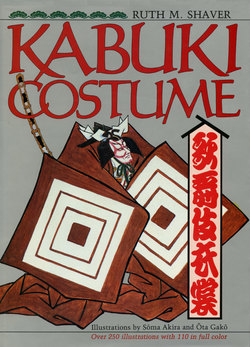Читать книгу Kabuki Costume - Ruth M. Shaver - Страница 12
На сайте Литреса книга снята с продажи.
ОглавлениеNOTE
In speaking Japanese, the five vowels and double consonants are pronounced as they are in Italian, single consonants approximately as they are in English, except that g is always hard. Japanese words are pronounced with an almost equal stress on each syllable, except where there is a long vowel sound which is mainly a pitch accent and not a stress accent as in English. Unvoiced consonants sometimes become voiced—for example the change from s to z in sakura (cherry tree, cherry blossom) in the play title Yoshitsune Sembon-Zakura.
A noun does not denote gender or plurality except by context of the sentence. The same spelling is standard for singular or plural verbs. The custom of Japanese surnames preceding given names is followed throughout the book except in the Acknowledgments, where all names except those of actors are given in Western style. Kenkyūsha's Mew Japanese-English Dictionary and the author's instructors were the authoritative sources for the spelling of Japanese words. All Japanese words other than proper names and those which are widely familiar in the West are italicized. Except in well-known place names, macrons to indicate long vowel sounds have been retained since they are essential to correct pronunciation.
